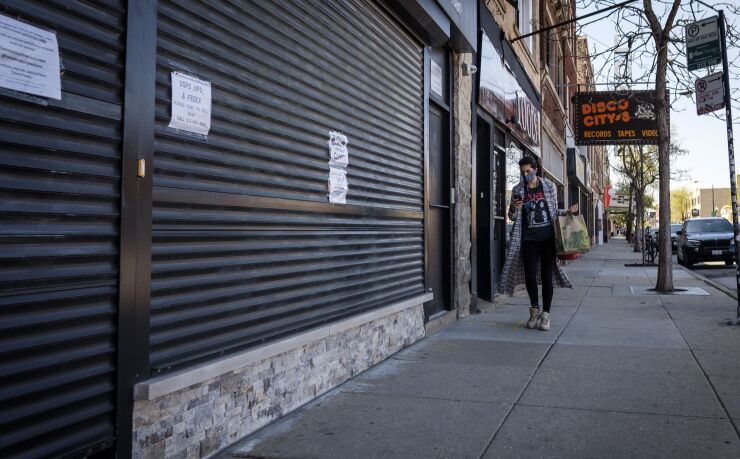Illinois is close to committing $2 billion of its American Rescue Plan Act relief toward repayment of its federal unemployment insurance trust loan, leaving a $2.5 billion gap to fill through borrowing or other means, a top state House Democrat said Thursday.
Gov. J.B. Pritzker's administration had previously said it intended to use some of its ARPA aid to repay the loan but the $2 billion figure came to light last week as lawmakers began
The $2 billion “represents an agreement between” House and Senate Democratic leaders and Gov. J.B. Pritzker on “what the state of Illinois would fund toward solving that $4.5 billion problem,” House Majority Leader Greg Harris, D-Chicago, said at a news conference Thursday providing a legislative update. “It could still change.”

Negotiations continue between lawmakers, Pritzker, labor, and business “about how you fix the totality of that $4.5 billion problem and there are number of solutions being discussed including the use of that ARPA money and potentially…bonding out a portion of the debt,” Harris said. “There could be requests for other types of revenue from the state” along with other measures that make up the final fix.
The bonds would repaid by employer contributions to the unemployment trust, as would the federal loan if no action is taken. Businesses want that burden minimized.
The state settled on the $2 billion figure as it represents 25% of the state’s $8 billion ARPA allocation, which is along the lines of what other states have committed, Harris said.
The federal government provided advances to the states to avert shortfalls in Title XII Unemployment Insurance Trust Fund account as jobless claims surged to record levels during the early days of the COVID-19 pandemic. It's an automatic mechanism to ensure that unemployment benefits continue without interruption.
States paid out $175 billion of benefits since the start of the pandemic through Sept. 11. That’s in addition to the $661 billion of federal government extended and expanded benefits between January 2020 and September 2021, according to a
The state has $3.5 billion remaining of unallocated ARPA aid and Republicans are pushing for a higher allocation to offset the potential impact on business taxes and the need for benefit cuts.
The state faces an April 1 deadline to allocate its ARPA aid toward repayment if it wants to preserve the ability to cut benefits under the U.S. Treasury’s
The state turned to

The bonds were secured by a first lien on a portion of state employer contributions to the unemployment insurance trust fund. The bonds had a rapid amortization structure that also allowed excess collections to go toward an early redemption. The pledged revenues were held in a separate and distinct account from various state funds and benefited from an irrevocable and continuing appropriation of receipts.
Interest began accruing after Sept. 6, 2021, on tens of billions of dollars in UI loans. The legislation would extend the interest waiver through Sept. 30 and retroactively forgive accrued interest in an effort give states more time to come up with a repayment plan.
Nine states and the Virgin Islands still owe the federal government $39.3 billion for advances with the interest tab of more than $300 million.





